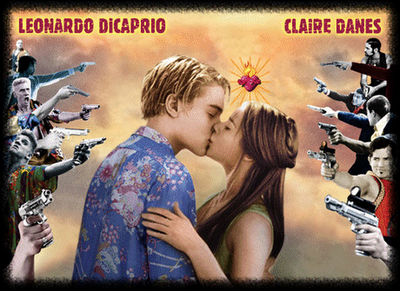a will for all ages
Shakespeare is boss. Truly. I didn't always feel that way, though. I remember trying to read Macbeth and Hamlet in high school and feeling that he wrote in a foreign language. The words could've been German or French or Italian for as much as I understood them.
I was a theatre major in college, so I got to read my fair share of the bard in my literature classes as well, and I still didn't understand him. And then I worked on my first Shakespeare play live, The Comedy of Errors, and it all clicked! Hearing his words made sense to me. And that's when I began reading out loud. Wow! What a difference that made to my comprehension. And I learned to appreciate that Will was baudy and funny and timeless. As a 20-something, I especially appreciated the baudy. I felt like I was in on a little secret when I figured out he was talking about sex and no one else picked up on it. I felt he was speaking to me, hundreds of years later.
Shakespeare commented on the human condition in a way that no other author had been able to do. His stories weren't always original -- he adapted works by other authors, poets, and playwrights. But he was such a genius that his adaptations are the versions we remember -- the classics. He mocked the government and the wealthy. He was honest about human desire and temptation. And he was able to reach the masses -- not just the wealthy, educated aristocracy. One cool dude.
I went on to stage manage many Shakespeare plays in my almost two-decade career in theatre. Some were good. Some were really good. There's an on-going debate in the theatre world about whether or not Shakespeare (or Mozart opera or any classic) should be set in the period in which it was written. Purists feel that by contemporizing a play, or placing it in any period other than the one it was written in, it loses it's spirit. Of course, Shakespeare, although an Elizabethan author, always set his plays in different periods, so I'd say he'd be cool with it.

I've always been drawn to the story of Romeo and Juliet. The love, the hate, the gain, the loss -- it's so true to the personal and emotional struggles we each face everyday. On a more global level, Shakespeare is telling us that rivalry, war, and hate of a "people" can destroy that which is dearest to us. I wish someone would tell our elected officials that.
I've seen a dozen or so productions of R&J over the years. And then there's West Side Story, probably my favorite musical in the world. The story moves me in a way that no other story ever has, leaves me aching, wanting, crying. It's petty incredible.
So, I just viewed Baz Luhrmann's Romeo + Juliet. I remember seeing it when it opened in theatres in 1996. I was still working in theatre at the time and I went with my friend, Jen, who was the scenic artist at the theatre where I worked in NY. I remember thinking it was a bit campy and flashy and contrived, but still pretty true to Shakespeare's intentions. The text was exactly the way Shakespeare had written it, which caused a few challenges, but Baz seemed to make everything work. Yeah, they beat you over the head with some of the analogies, like the "sword" brand guns, but remember, Baz was trying to reach out to the masses, many whom have never read or seen Shakespeare before.

The theatre that afternoon was filled with teenagers. I think Jen and I were probably the only adults in the audience. Teens are so "real" in their emotions during performances (stage or film). They talk to the characters, react to the action, cheer on the hero, boo the villian -- they become part of the drama. I think there's something about the anonymity of being in a darkened theatre that allows them to become someone they've never been before.
At the theatre I worked at in NY, we had a handful of outreach programs to bring kids into the theatre. Our audience, like many around the country, was aging. The only way to continue to exist was to develop the next generation of theatre-goers -- youth. We had student matinees (we called them creature features) at 10:00am for all of our plays, followed by a discussion with actors (talk-backs). Sometimes the kids were great. And then there were times we had to stop the performance because they weren't so great.
So when I sat in a darkened movie theatre, surrounded by teens who probably didn't even realize who Shakespeare was, watching one of his most powerful plays, I was moved. And thankful that Baz Luhrmann had decided to bring the bard to the masses.
The film holds even more appeal to me now, ten years later.


1 Comments:
Cool post. And greetings from a fellow theatre major who spent a few happy decades on the stage.
Ahhh, I miss the stage. Still have the actor's nightmare, though. I wouldn't miss that if it went away.
Post a Comment
<< Home